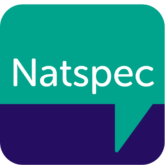Ever since its inception in 2018 the annual TechAbility conference has had a theme. This theme either helps define the programme, or emerges as a response to the presentations submitted. In 2023, neither of these options occurred and I think this tells us something about the breadth of users of Assistive Technologies and the settings in which they use them.

The obvious zeitgeist was AI, but to focus too much on this would be to deny some of the fundamentals that people are still learning about in education and care settings. Those fundamentals include switch access, which is often misunderstood and oversimplified as an access method. The subject of switch use was covered in two highly contrasting presentations: one describing how Treloar College enables adults to explore their sexuality through adapted sex toys, the other setting out the Pace Centre’s formalised system called the “Seven stages of switch development”.
Two of the conference presentations did cover the use of AI for greater accessibility – firstly by the Open University who have designed virtual assistants (also known as chatbots) to support disabled students. The Open University also have exciting plans to co-design systems which will support knowledge sharing between students and staff. The second AI themed presentation gave delegates a chance to try out a range of tools and see how these might benefit disabled students.

As could be expected from the breadth of users mentioned above there was much content and discussion between these two poles of futuristic and fundamental. Weston College and Bradford College described their systems approaches to ensuring that specialist and personalised Assistive Technology solutions could be provided across very large educational organisations. This personalised support in a large setting was also illustrated by Natalie Curran, Masters student and Lilian Joy, Educational Adviser from University of York. They detailed the infrastructure and research required to make accessible maths approaches available at the university and how to make these available to other learners studying maths.
The breath covered by AT solutions was also reflected in the range of exhibitors present at the conference. Highly specialist access systems sat alongside independence support tools, interactive screens and assessment services. It is important to us that the presentations at TechAbility conference are led by practitioners, but it is critical to note that without the innovative development undertaken by Assistive Technology companies, many solutions would just not exist.

As a service which supports a wide range of settings and individuals at various levels of responsibility, TechAbility is keen to make sure that an event like this conference is encouraging and beneficial to all. The conference chair highlighted this approach by reminding delegates of the progress not perfection approach which is so important to making sure change happens. Alongside this, Assistive Technology does not have the same substantial research base as, for example, Speech and Language Therapy. For systems change to occur, progress must be backed by research and the need for Assistive Technology research was another thread in the tapestry of TechAbility23. One subject in the newly inaugurated discussion forum revolved around the research gaps which needed addressing. Several presentations highlighted the need for research and especially the need for UK based research.
Our legendary keynote speaker Annalu Waller picked up the theme of AT research in her amazing keynote speech, which somehow managed to condense her varied and long career into 40 minutes! Annalu described the importance of ensuring that disabled people are not just subjects of research but also involved in research design to ensure their lived experience is considered.
Even before TechAbility23 closed, the team was already planning for the 2024 conference. Given the experience of the 2023 conference (and those before), if TechAbility24 has a theme it is sure to reflect exactly what the sector needs which is breadth backed up by specialism.


